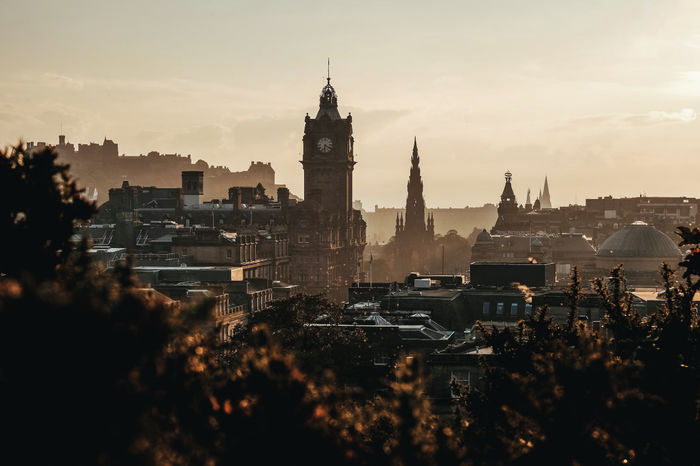Passages is a beautiful spectacle, but lacks substance
Franz Rogowski excels, but the film doesn’t quite click, according to Nikolas Boyd-Carpenter

With its cadre of stylish, pretentious creatives swanning around Paris, a messy queer love triangle and a major role for Paddington’s very own Ben Whishaw, director Ira Sachs’ new film Passages sounds like catnip for a rather large demographic of Cambridge students. So, does it live up to such expectations? To my mind, the answer is… sort of? Doubtless, here is an entertaining, fast-paced movie with some wonderful moments, and yet my final impression was of a missed opportunity, of something that could have been so much more.
“He is monstrous without being a monster”
Passages centres on the turbulent love life of Tomas (Franz Rogowski), a German filmmaker living in Paris – a portion of the film’s dialogue is in French – with his English husband Martin (Ben Whishaw), a successful printer. From the film’s opening, their not-so-successful open marriage is on the rocks, with Tomas commencing a passionate affair with a younger woman, Agathe (Adèle Exarchopoulos). As their relationship collapses, tangled loyalties, attempts at reconciliation, and increasing despair follow, albeit intermingled with comic moments, such as Tomas’ awkward first meeting with Agathe’s austere parents.
A promiscuous German bisexual filmmaker, mercurial, charismatic and very, very toxic, Tomas bears a more than passing resemblance to Rainer Werner Fassbinder, whose films are a major influence on Sachs. In fact, the plot of Passages has much in common with Fassbinder’s masterpiece, The Bitter Tears of Petra von Kant, which also centres around a talented but manipulative gay artistic pioneer and their disastrous personal life. Unfortunately, this comparison only serves to illuminate exactly where Passages falls short.
Fassbinder’s film thrives in its intense focus – the action never leaves a single apartment, with sprawling single takes drawing the viewer into the pressure cooker of tangled relationships and skewed power dynamics depicted on-screen. Sachs, on the other hand, is far less concentrated in his approach. A revolving door of ensemble characters come and go without ever being particularly fleshed out, and the action jumps from location to location in a series of rapid scenes. The film rarely allows you to become invested in its interpersonal relationships as it never really takes the time to portray them. Tomas and Martin’s marriage is already at its end when the film begins, and despite multiple, almost pornographic sex scenes, we are still left wondering why the two were ever together in the first place. When the more intimate dialogue does come, all too often the writing feels somewhat formulaic, a series of relationship truisms neatly arranged one after the other. Where Fassbinder brands his figures on the viewer’s mind, Passages leaves us only with fleeting impressions of character.
“A revolving door of ensemble characters come and go without ever being particularly fleshed out”
This is a shame, as the film benefits from some superb acting. Both Whishaw and Exarchopoulos are impressive, but the real star turn comes from Rogowski. His obsessive drive clear from the opening scene, in which he lashes out at an actor for the way they walk down stairs, he captivates with his coiled aggression and emotional instability. Tomas’ rare moments of vulnerability are among the film’s best, particularly as he begins to be drawn back towards Martin. Their meetings fraught and unpredictable, Rogowski veers from passionate and selfish to wounded and bitter. His fleeting moments of honesty reveal him to be conflicted and riven with doubt – he is monstrous without being a monster.
While the film struggles to consistently convince as a narrative, it is often visually beautiful. Alongside cinematographer Josée Deshaies and costume designer Khadija Zeggaï (who brings some gorgeous outfits to the party), Sachs creates some stunning images, often incorporating subtle colour gradations to craft a tender air of sensuality. At one point Agathe sits against a headboard, the dark brown of the wood melting into her lighter arm; framed by the white plaster wall, she sings a song from her childhood to Tomas. Elsewhere, Martin faces away from the camera, his scarlet robe carving him out against the blue sheets beneath it. The camera lingers, relishing the composition, leaving time for the viewer to appreciate a level of detail otherwise lacking in the screenplay; Sachs hints at nuances to characters who all too often feel like flat ciphers. It is in such moments, where a slower, more visual story takes precedence, that the film hints at realising the potential it clearly has. Sadly, Passages never really explores these possibilities, and a promising premise flatters to deceive.
Passages is currently showing in UK cinemas
 News / Uni Scout and Guide Club affirms trans inclusion 12 December 2025
News / Uni Scout and Guide Club affirms trans inclusion 12 December 2025 News / Pembroke to convert listed office building into accom9 December 2025
News / Pembroke to convert listed office building into accom9 December 2025 Features / Searching for community in queer Cambridge10 December 2025
Features / Searching for community in queer Cambridge10 December 2025 News / Uni redundancy consultation ‘falls short of legal duties’, unions say6 December 2025
News / Uni redundancy consultation ‘falls short of legal duties’, unions say6 December 2025 News / Gov declares £31m bus investment for Cambridge8 December 2025
News / Gov declares £31m bus investment for Cambridge8 December 2025









